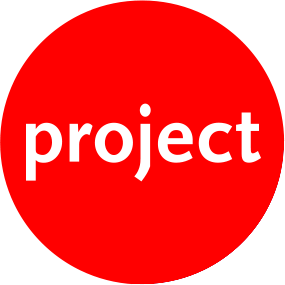Latest News
ROOM: An Online dance film platform + artist conversations by Flora Fauna Project
– Open between 22.01.07-22.02.27 on www.florafaunaproject.com
– ROOM is free to the public and is supported by the Irish Arts Council, in partnership with Project Arts Centre, D-Light Studios and Dance Ireland.
How to bring dance close again? How to connect with each other through this art form in a digital space? As well as their professional stage and community work, Flora Fauna Project are dedicated to giving ROOM to the wider dance community. Artist-led initiatives are important to us because it gives the art form a more independent space for sharing.
Flora Fauna Project had approximately 150 applications for ROOM 2022 from all over the world. The projects were made with a wide range of budgets, from high to homemade, and everything in between. The latter in this case felt more intimate, bringing us closer to the artists and the stories they wanted to share. ROOM 2022 presents dances and stories from Nigeria, Sweden, India and Ireland.
Flora Fauna Project received a wave of work from all corners of the earth all dealing with the dancing body (re)connecting to the land and to nature, and all highlighting our distance and disconnection from the natural world as a species. Deepanwita Roy in many ways represents this global movement. In ‘Green Moves’ Roy brings us close to the nature around her in Darjeeling, India; reflecting on the roots of our separation from the natural world and responding with an intimate look at life in her mother’s garden.
From here we’re taken to Sweden, where Tobias Sköld moves through the city of Stockholm, embodying the tension between living in a high tech society and longing for real connections. ‘A Light Touch’ is a poetic journey loaded with longing for nature through the landscapes of the Stockholm underground.
In Nigeria, we glimpse a very different city. Artists Oluwaseun Usman and Busayo Olowu were on fire for freedom and democracy as they persevere to survive and keep creating in a military-dominated and oppressed society. Their film ‘A Lucky Generation’ is inspired by Nigerian poet, novelist and critic, Chinua Achebe. This film takes us on a journey through their city of Lagos, highlighting the effects of change, modernisation and identity within Nigerian society. Using Achebe’s words the young artists weave together the complexity of history, inner conflict and outer challenges in a work that is both specific and personal, and yet resonates with us globally today.
So much work comes and goes and sometimes it’s important to take another look. A lot of art at its very best is ahead of its time, and so Flora Fauna Project came to Ireland, to Ríonach Ní Néill, to discuss her lifetime career and experiences in Dance. They take a look at a film she made with Joe Lee almost 10 years ago called ‘The Area’ which in many ways ties the ROOM together. Over the last few years, as we have gone in and out of lockdown, the challenges of city life became apparent to so many of us. The value of green and social spaces in our daily lives has become clear, and the lack of them is in need of our urgent attention. This film is a look at Dublin city through the eyes and memories of an elderly cast; where they used to dance and what they have lost gradually over time. In this film the dancers of the Macushla dance club “hack places created out of an economic imperative and repurpose them as sites of emotional, biographical and dramatic meaning…their dances are an ephemeral graffiti – giving unauthorised and unofficial meanings to the places they occupy – ‘We were here! This is ours!’ Past and present merge.” The community of Macushla was brought together by Ní Néill to question and explore issues of marginalisation, in this case, the ageing population of Dublin City.
Flora Fauna Project is an artist-led collaboration + production company rooted in dance and music by choreographer Maria Nilsson Waller and multidisciplinary artist Stace Gill (The Sei).
Find out more at www.florafaunaproject.com
Image Credit: Still taken from Tobias Sköld film ‘A Light Touch’ made with Aleksandra Pękala.
